ASX, $A take hit as Melbourne virus outbreak grows
A 0.6pc drop on the local market cemented a 2.3pc weekly dive for shares on concerns Melbourne’s outbreak will stall the econmy’s recovery.
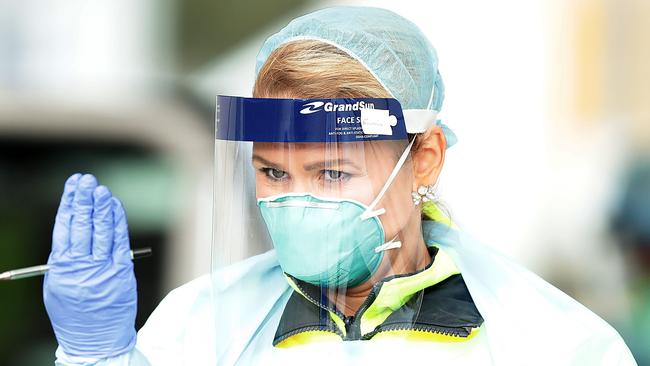
- Lockdown to trim 2ppt from GDP
- $A headed back to US68c: Deutsche
- PolyNovo sales booming despite COVID-19
- Sezzle to raise $86m
Welcome to the Trading Day blog for Friday, July 10. The local market finished Friday’s session down 0.6pc at a 7-day low, capping the week down 2.3pc as Melbourne’s growing coronavirus tally shakes sentiment.
Buy now, pay later stocks were again in focus as Afterpay and Zip both set new records, while Sezzle tapped the market for $86m.
Samantha Bailey 5.29pm: ASX ‘flatlining’ post recovery
The local sharemarket finished firmly lower on Friday, rounding out at 2.3 per cent loss for the week.
At the close of trade, the S&P/ASX 200 was down 36.2 points, or 0.61 per cent, at 5919.2, while the broader All Ordinaries fell 38.6 points, or 0.64 per cent, to 6036.3.
The market extended early losses in late trade following a sharp rise in Victorian coronavirus cases and risk aversion in global markets, with S&P 500 futures slipping along with oil futures.
Energy, mining and banking stocks were responsible for the bulk of the declines on the local bourse.
CommSec market analyst James Tao said yesterday’s session was relatively quiet on the local market on low volumes.
“How the lockdown in Melbourne will impact the economic recovery is the big (issue) at the moment so investors are just a little more wary about what’s happening,” he said.
“We’ve seen the market over the last six weeks more or less flatlining from the very steep recovery we saw from about April to May.”
The financials sector led the losses, with Westpac down 1.4 per cent to $17.66, NAB off 1.1 per cent at $17.86. ANZ down 1 per cent to $18.30 while Commonwealth Bank eked out a 0.3 per cent gain to $70.63. Macquarie fell 1.5 per cent to $119.80.
In materials, BHP lost 0.7 per cent to $36.19, Fortescue edged down 0.1 per cent to $14.85 and Rio Tinto fell 0.7 per cent to $97.99.
The energy sector had a bad session, with sector leaders Woodside Petroleum down 2.4 per cent to $21.14. Oil Search pulled back 4.2 per cent to $3.00, Santos fell 1.9 per cent to $5.19 and Origin Energy backtracked 2.2 per cent to $5.73.
Toll road operator Transurban fell 1.2 per cent to $13.57 after the lockdown in Victoria took effect and the border between NSW and Victoria remained closed.
Webjet was one of the worst performers of the session, sinking 4.4 per cent to $3.02. Also a likely victim of the Victoria coronavirus shutdown was Corporate Travel, which lost 7 per cent to $8.83.
The tech sector was mostly lower, despite the Nasdaq hitting new record highs on Thursday night. WiseTech fell 3.5 per cent to $20.34, Computershare lost 0.5 per cent to $13.27 and Xero added 1.3 per cent to $93.18.
Afterpay lost 1.6 per cent to $72.31 after gaining as much as 4.3 per cent earlier in the session.
Elsewhere among the by now, pay later players, Zip Co put on 8.1 per cent to $7.24, Splitit jumped 3.2 per cent to $1.62 and OpenPay rose 4.3 per cent to $2.92.
Among the consumer stocks, Breville was one of the best performers of the session, putting on 1.9 per cent to $23.69. Coles gained 1.4 per cent to $17.72 while Woolworths lifted 0.8 per cent to 38.51.
The Australian dollar was trading 0.51 per cent lower at US69.27c in late trade.
5.15: Adani CEO exits - report
Adani Australia CEO Lucas Dow is steppng down, Bloomberg reports. Mr Dow will be replaced by David Boshoff, who currenbtly heads the group’s giant Carmichael coal and railway project, Bloomberg reported.
Mr Dow joined Adani in April 2018.
More to come
4.41pm: Netwealth rally grows, travel takes hit
Investing platform Netwealth is one of the best performing stocks for a second day, after the group posted a jump in funds under administration for the June quarter.
Shares finished Friday’s session up 5.6 per cent to $10.70 - marking a 15pc two-day jump.
Despite early strength Afterpay, which hit new records of $76.62 in morning trade, finished lower by 1.6pc to $72.31.
The buy now pay later provider left the rally to its peers - Zip adding 8.1pc to $7.24 while Splitit rose 3.2pc to $1.62 and OpenPay by 4.3pc to $2.92.
On the flip side, Corporate Travel took a 7pc hit to $8.83 as Melbourne’s lockdown dents any hope of recovery in the sector. Webjet fell 4.4pc to $3.02 and Flight Centre lost 2.5pc to $10.54.
Here’s the biggest movers at the close:
4.13pm: Shares trim losses to close down 0.6pc
The local market trimmed losses at the close, hit by growing risk aversion as Melbourne’s COVID-19 case tally rises.
In the last hour of trade, shares hit a 7-day low of 5899.5, but bounced to close down 36 points or 0.61 per cent to 5919.2.
The slip cements a 2.3 per cent drop for the week, with uncertainty in Victoria the driving force.
All sectors bar staples and health finished in the red, led by a drop in energy as oil prices slid overnight.
3.45pm: ASX drops 0.9pc to 7-day low
Australia’s share market dived 0.9pc to a 7-day low of 5899.5 in late trading.
Westpac fell 1.9pc, Macquarie fell 2.2pc and Transurban lost 1.7pc. Afterpay fell 1.6pc to $62.34 after rising 4.3pc to a record high of $76.62.
The index dropped below Wednesday’s low at 5920.2 after a sharp rise in VIC coronavirus cases and risk aversion in global markets before the weekend.
S&P 500 futures fell 0.8pc, the Australian dollar fell 0.5pc, WTI crude oil futures lost 1.6pc and the Shanghai Composite fell 1.3pc.
Investors also appear to be lightening up on risk before the weekend.
Coronavirus deaths hit record highs in California, Texas and Florida yesterday
Not a good day for Australia/Victoria on the #COVID19 front. pic.twitter.com/1OWjdqlCT4
— Shane Oliver (@ShaneOliverAMP) July 10, 2020
3.17pm: Metlifecare recommends revised EQT deal
Metlifecare said its directors have recommended that shareholders vote in favor of a takeover offer from Swedish investor EQT Fund Management.
The retirement village operator said on Friday its largest shareholder, The New Zealand Superannuation Fund, supports the offer of $NZ6 a share. The takeover values Metlifecare at $NZ1.28bn.
The company said it has ended the litigation against EQT that was initiated after the fund backed out of a NZ$7 a share offer, citing the pandemic.
Dow Jones Newswires
3.07pm: ASX slides to daily low
Rising virus concerns in Victoria are hitting the ASX in afternoon trade, sending the benchmark to its worst levels of the day.
With just under an hour to go, the benchmark is lower by 30 points or 0.51pc, setting the index up for a 2.1 per cent weekly loss.
And as stocks fall, so too is the Aussie dollar - down 0.45pc to US69.32c.
Energy is the hardest hit, followed by telcos and the major banks, though Commonwealth is holding on to gains of 0.6pc.
1.53pm: $A slipping as Vic cases climb
The Aussie dollar is slipping near the worst levels of the day as Victoria records 288 new coronavirus cases across the state.
AUDUSD is down by 0.3 per cent to US69.43c, as the ASX holds lower by 16 points or 0.27pc to 5939.2.
Read more: Victoria records 288 new cases, arrivals cut by half
1.34pm: Tencent regulatory risk low: Magellan
When it comes to Tencent, regulation is the “greatest concern” among the risks of investing in China, but the chance of it hurting Magellan’s investment in Tencent is “low”, the fund manager says in an update.
“While regulatory risk is not unique to China – we see it with some of our US technology investments too – we are of the view that it is higher than in most developed countries due to the limited visibility and legal recourse,” says Chris Wheldon, portfolio manager and co-head of Magellan Financial’s Technology team.
He notes that risks associated with investing in China rather than Tencent per se include the potential for Chinese government insistence that companies invest in uneconomic areas, and the need for foreigners to invest via ‘variable interest entity’ structures due to foreign-ownership restrictions.
“We consider the probability of either of these risks having a significant impact on the value of Tencent as low given the Chinese government’s interest in attracting foreign investment and maintaining cordial global relationships,” Mr Wheldon says.
“We also manage these risks via portfolio risk controls.” Tencent was the third best contributor to Magellan’s Global Fund in the June quarter after Microsoft and Facebook.
Magellan Global returned 1.5 per cent in the past month versus 2.3 per cent for its benchmark MSCI World Net Total Return Index hedged to Australian dollars.
It also underperformed over three months with a 13.5pc return versus 17.8pc for the benchmark, but outperformed by 3.9pc over 1 year and 4.4pc over three years.
Rachen Baxendale 1.26pm: Victorian cases to pass 280
Victorian Premier Daniel Andrews is due to give a press conference within minutes, amid reports that the state’s number of new coronavirus cases is more than 280.
The previous highest number of cases in any state was 212 in NSW on March 28, and Victoria’s previous high was 191 cases on Tuesday.
Mr Andrews is expected to begin speaking after Prime Minister Scott Morrison concludes his press conference, currently underway.
Shares extended their decline on the news to hit lows of 5925.4, last down 0.2pc to 5944.6.
Read more: National Cabinet to decide on arrivals cap
1.02pm: Energy slide restrains ASX
Shares pushed briefly into positive territory at lunch but failed to hold on to gains as weakness in the major banks and miners pulled the index lower.
At 1pm, the ASX200 is lower by 16 points or 0.27 per cent to 5939.2 – after hitting 5956.2 in earlier trade.
Energy stocks have extended their decline, down by 2.2pc now with a 2.8pc fall in Woodside and 3.7pc slide in Oil Search.
The tech sector though is holding gains of 1pc, following records on the Nasdaq overnight, and led by a continued rally in buy now, pay later stocks.
Here’s the biggest movers at 1pm:
12.49pm: Lockdown to trim 2ppt from GDP
Melbourne’s lockdown is set to trip as much as 1.5ppt to 2ppt from the economy’s GDP recovery in the September quarter, as unemployment rises to 7.7pc, according to ANZ.
The bank argues that with the whole of the Melbourne and Mitchell areas locked down, the rebound it had hoped for this quarter will be softened.
“This estimate reflects both the direct impact of the lockdown to around 20pc of the economy, but also the impact on regional Victoria and on business and consumer confidence nationally,” it says.
“We also think there will be more businesses that decide they can’t hold on during another lockdown and a flow-on impact to the labour market too. We now see the unemployment rate rising to 7.7pc in Q3 as the recovery in employment is delayed.”
ANZ Australian Macro Weekly: We estimate that the Melbourne lockdown will weaken the bounce in Q3 #GDP by as much as 1.5-2.0ppt. #Unemployment will be higher as well, ending Q3 at 7.7%. This reflects both direct and regional/national effects. #ausecon #auspol @DavidPlank12 pic.twitter.com/uQADF9n70K
— ANZ_Research (@ANZ_Research) July 10, 2020
12.24pm: BNPL stocks smash new records
Record breaking sessions have become a dime a dozen for Afterpay, but the rest of the buy now, pay later is following its strong lead in Friday’s session.
After Morgan Stanley yesterday tipped Afterpay to hit $101, Afterpay is again the best performer on the benchmark, higher by 3pc to $75.81, but the other 5 locally listed players are jostling for a piece of the action too.
Zip, the second largest BNPL stock by market cap, hit new highs of $7.72, up 14.2pc in lunch trade with no news in the market, while Splitit jumps 8.3pc to $1.70 and OpenPay rises 11.8pc to $3.13. Flexigroup is higher by 3.6pc to $1.31.
US focused Sezzle revealed earlier today its intentions to raise $86m in a placement and share purchase plan, after its shares hit a record of $8.25 yesterday.
Pricing for the raise will be determined by a bookbuild, with a floor price of $5.
Read more: Afterpay on a roll towards $100
12.10pm: Treasury upgraded as bad news aired: Macq
Macquarie has raised its rating on Treasury Wines to Netural, saying issues with the winemaker were now “out in the open” after its latest business update, adding that its preference was against a spin-off of Penfolds.
The company warned of a 21pc earnings slide yesterday, as COVID-19 hit sales across global markets, and exacerbated by extreme heat damaging the 2020 vintage.
Still, Macquarie today said the company’s risks were now better understood, increasing its price target by 24pc to $11.50.
“The cost of goods sold impact from the lower vintage will be material, while ongoing travel restrictions and restaurant closures will continue to weigh on the on-premise segment, with support for restaurants likely required,” analysts say.
“However, the update clarified and addressed the risks we have been writing for the stock and with the issues out in the open we believe the worst news may be out of the way.”
The broker added that the demerger of Penfolds would leave a new Treasury with diminished value, saying it would prefer to see disclosure of the product segments separated instead of a divestment.
TWE last traded down 2.7pc to $10.66.
11.45am: Taxes put customers off insurance: ICA
Insurance Council chief Rob Whelan has blasted state and territory governments, especially NSW, for their high taxes on insurance, urging a committee into the summer bushfires to consider the impact of tax.
In an opening statement to the Senate inquiry into lessons to be learnt from the bushfires, Mr Whelan highlighted taxes as a key disincentive for property owners to be insured.
“The cumulative impact of the Emergency Services Levy, GST and then state stamp duties means that households are paying about 50 per cent in taxes on their home and contents insurance, and small businesses are typically paying about 70 per cent,” he said.
“These taxes are bad for all property owners, and the pain they cause is even more heightened in low-income communities, regional areas and properties with a high risk of bushfires, storms, floods and other natural disasters.
“We urge the Committee to consider the impact of taxation on the capacity of bushfire communities to properly insure and to recover after bushfires.”
He added that insurers were willing to slash premiums on projects where bushfires and risk mitigation projects were undertaken, pushing for federal and state funding.
“At present we spend 97% of money recovering from disasters rather than preparing for them,†@Suncorp's Michael Miller tells today’s senate committee hearing on lessons to be learned from the 2019-20 bushfire season.
— Australian Banking Daily (@BankingDailyAU) July 9, 2020
11.27am: $A heading back to 68c: Deutsche
The Australian dollar is likely to test the bottom of the 68-70 US cents range according to Deutsche Bank macro strategist, Tim Baker.
Mr Baker says a return to the bottom of the range is more likely because of the Melbourne lockdowns, which affect a fifth of the national economy.
He notes that the Aussie has tracked global risk assets, which have also been in a range given a tussle between better – albeit lagging – economic data and the worsening virus in the US and parts of Emerging Markets.
“With these assets towards the top of the recent range, downside may be more likely near term,” Mr Baker says, but he notes that strength in commodities should prevent any significant fall in the Aussie dollar.
“Iron ore is still firing and copper has run hard (which) partly reflects restricted Latin American supply due to the virus, but Chinese demand is also strong,” Mr Baker says.
“The Aussie data has also been quite good – retail sales are actually 6 per cent higher over the year, and vehicle sales and consumer sentiment have almost normalised. This has prompted a slightly more upbeat message from the RBA.”
AUD fell from about US69.60c to US69.35c after VIC Treasurer Pallas said it will take 2.5 years to recover from virus lockdowns.
Lisa Allen 11.09am: Triguboff pushes for quarantine clarity
One of Australia’s richest men, billionaire Harry Triguboff, has pushed the NSW Government to reveal how many more serviced apartments it needs for COVID-19 quarantine purposes – warning the authorities could run out of available rooms.
Mr Triguboff, who owns 20 serviced apartments on the Eastern Seaboard, said under government directives serviced apartments used for quarantine purposes cannot also be used for general public use.
“When the virus appeared, some serviced apartments (operators) offered beds to the government,” Mr Triguboff said. “I now hear there may be few beds required and now there is more demand for our product (from the general public).”
“But the question is what will happen with the expats, hospital staff, students and workers who will require the whole building? Once we start leasing there will be no whole buildings left.
“What we want is the government to tell us what they need and by whom. This way we will know what is needed,” Mr Triguboff said in a statement to The Australian this morning.
10.55am: Sezzle to raise $86m
Buy now, pay later platform Sezzle has unveiled plans for a $86.3m ($US60m) capital raise to accelerate the company’s growth strategy.
The stock was halted yesterday after hitting new record highs – and has today said it plans to raise $79.1m in an institutional placement followed by a $7.2m share purchase plan.
The offer price will be determined via a bookbuild process, with a floor price of $5 – a 28pc discount to its last traded price of $6.95 yesterday.
Proceeds of the raise will be used to fund sales and marketing, product enhancement and expansion, international expansion opportunities and to strengthen the balance sheet.
Approximately 15.8 million will be issued under the placement, representing 8.9pc of the company’s existing issued capital.
Ord Minnett is lead manager of the raise.
Read more: Afterpay on roll toward $100
Rachel Baxendale 10.52am: Vic Treasurer unveils new $543m stimulus
Victorian Treasurer Tim Pallas has announced an additional $534m business support package, acknowledging that the state’s second coronavirus lockdown will have a “devastating impact” on its economy.
The new money adds to $6bn in economic relief already invested since the pandemic began.
The latest measures include cash grants of up to $5,000 for more than 80,000 eligible businesses, mental health support for business owners, relief for tourism operators who can no longer welcome Melbourne-based visitors for holidays and tailored and targeted advice for businesses to adapt and stay afloat when the lockdown ends.
The $5,000 grant will apply to all areas under Stage Three stay-at-home restriction.
“I want to be clear that the government apologises to Victorians,” Mr Pallas said.
“It isn’t where we want to be. This event will have a devastating impact on our economy and on thousands of Victorian businesses.”
Read more: Victoria took contract tracing rules shortcut
Jared Lynch 10.45am: Reclusive rich lister backs satellite firm
Reclusive multi-millionaire Jan Cameron has resurfaced, investing $3m in Luxembourg-headquartered spy satellite company, Kleos Space, from her farm in Tasmania.
Ms Cameron – who could face up to 5 years in jail after the corporate regulator brought criminal charges against her earlier this year over her involvement in the boardroom battle for infant milk formula group Bellamy’s three years ago – has been welcomed with open arms at Kleos.
Chief executive Andy Bowyer said the company had “received commitments from entities controlled by Janet Cameron to raise $3m via the issue of 10,000,000 new ordinary fully paid CDIs”.
“I thank Janet for her continued support, the placement provides further security for Kleos Space as we move into an exciting period for our shareholders,” Mr Bowyer said.
According to its website, Kleos will launch and operate satellites that will generate commercial ISR (intelligence, surveillance, and reconnaissance) and geo-services data, which it will to government agencies, the intelligence community, “or businesses interested in locating threats”.
KSS shares are diving on the news – down 18pc to 29.5c.
Read more: From her farm, Cameron is back in business
Samantha Bailey 10.26am: China tourist, student drop worrisome: CBA
A total collapse in Chinese tourism and student numbers as a result of tensions between Beijing and Canberra would hit Australia’s annual GDP growth by about 0.5 percentage points, Commonwealth Bank estimates.
As tensions with the key trading partner grow, the bank highlights that China accounts for a third of Australia’s education exports and roughly 18 per cent of our tourism exports.
“There is a risk that Australia’s tourism and education exports to China don’t recover once the borders are reopened as Chinese authorities have warned citizens from travelling to Australia,” senior economist Kristina Clifton says.
Last month, China issued a travel alert for Australia warning its citizens of racist attacks as a result of the coronavirus outbreak. Students were also urged to reconsider study plans in Australia.
“Australia’s borders are closed for now but these warnings may impact on Chinese tourist and student numbers once the borders are open again,” Ms Clifton said.
On the impact of trade relations on Australia’s agricultural exports, Ms Clifton said there were potentially significant short-term impacts, but Australia is likely to be able to find other export markets in the longer term.
Her comments come after China banned beef exports on four Australian processing plants and placed an 80 per cent tariff on Australian barley earlier this year.
Read more: Is Australia’s trade with China past its peak?
10.11am: Tech outperforms as shares slide
Shares are slipping in early trade, with tech continuing to outperform even as the rest of the market slides.
At the open, the benchmark ASX200 is lower by 27 points or 0.45 per cent to 5928, while the All Ords loses 22 points or 0.36pc to 6053.1.
Energy stocks are hardest hit, down 1.5pc after WTI crude fell 3.1pc, while the major banks slip by 0.9pc.
Gold stocks too are taking a hit after downgrades from Citi. Evolution is dropping 3pc.
9.56am: Harley Davidson to cut 12pc of workforce
Harley-Davidson said Thursday it will cut nearly 12pc of its global workforce worldwide as a result of a restructuring effort by new CEO Jochen Zeitz.
The struggling motorcycle manufacturer based in Milwaukee said an overhaul in its operating model will result in costs of about $42m in the second quarter. The company also announced its 17-year veteran executive John Olin stepped down as chief financial officer.
Harley-Davidson expects 700 of its 6,000 global employees to be eliminated, with 500 of those cuts happening this year.
“We’ve taken a hard look at our entire set up, our spending, and how work is getting done, to align our operating model, structure and processes,” Mr Zeitz said in the release.
Dow Jones Newswires
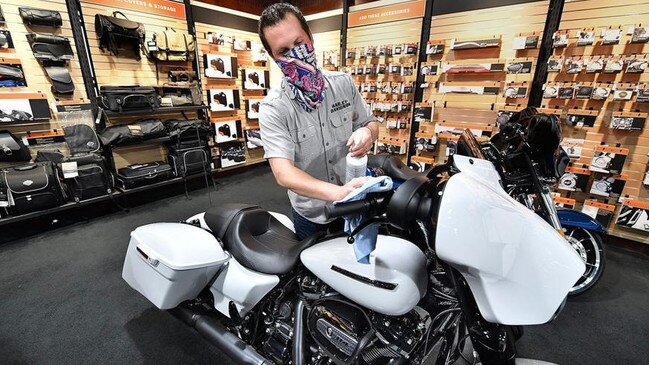
9.38am: PolyNovo sales booming despite COVID
Burns treatment developer PolyNovo has reiterated guidance for sales to double at its upcoming results, as it reports record US sales in June and its first sale in the UK.
The biotech, who rose to prominence earlier this year for the use of its treatments for NZ volcano victims and in the summer bushfires, said today it had posted record US sales last month, with a 67pc increase in US hospital accounts in the past year, despite COVID-19.
In addition, PolyNovo said it had made its first sale in the UK, while sales were “gaining traction” in the EU.
“Sales are still lumpy but there is a strong upward trajectory as surgeons embrace our product and the patient results it gives,” chairman David Williams said.
“While FY20 sales will show impressive growth over FY19, the sales run-rate is more impressive and should be a better indicator of the near-term future.”
PNV last traded at $2.44.
Read more: Three biotechs worthy of your research
9.34am: Shares to weaken
Australia’s share market may fall more than expected today amid weekend risk aversion.
After shying off 6000 points yesterday, the S&P/ASX 200 may extend its recent pullback, potentially falling more than 2 per cent intraday.
Despite the recent surge in China’s share market, the US and Australian markets look vulnerable to a resurgence of coronavirus, barring greater support from central banks or governments.
But S&P/ASX 200 chart support should hold near the apex of the recent bullish pennant pattern around 5815 in coming days. This pattern could still drive the index higher, but may need fundamental backing.
After falling as much as 1.7pc intraday, the S&P 500 closed down 0.6pc at 3152 – narrowly avoiding a bearish key reversal pattern – with Energy, Financials and Industrials leading broadbased falls, while the Technology and Consumer Discretionary sectors rose.
Like the S&P/ASX 200 and the Australian dollar, the S&P 500 may soon test support from the apex of a bullish pennant pattern, which comes in near the confluence of its 50 and 200 day moving averages around 3030.
The overnight fall came California, Texas and Florida recorded record numbers of deaths from coronavirus, WTI crude fell 3.1pc to $US39.62 and jitters emerged before earnings reports from JP Morgan, Citi, and Wells Fargo next Tuesday.
Importantly, the VIX volatility index rose 1.2 points to 29.26 per cent after bouncing off its 200-day moving average at 26.3 per cent for the second day this week.
The S&P/ASX 200 rose 0.6pc to 5955.5 on Thursday.
Samantha Bailey 9.25am: Nine sets out earnings outlook
Nine Entertainment has flagged an EBITDA figure of between $390 million and $410m when it delivers its full year results next month.
Wholly owned net debt at 30 June, 2020 was expected to be around $300m, the company said.
Nine withdrew its earlier full-year EBITDA guidance of around $423.8m in March, saying the rapid progression of the COVID-19 was beginning to have an impact on its business, and that the forward ad market was unpredictable.
The media company also said this morning that its chief financial officer Paul Koppelman had resigned for personal reasons and that current group financial controller Graeme Cassells would take on the role of acting CFO.
FY20 results will be released on August 27.
9.03am: What’s on the broker radar?
- AGL cut to Underperform – Macquarie
- Evolution cut to Sell – Goldman
- Evolution cut to Sell- Citi
- Goodman Group cut to Neutral – Citi
- Newcrest cut to Neutral – Citi
- Peet cut to Neutral – Macquarie
- Perseus cut to Neutral – Citi
- Regis Resources cut to Sell – Goldman
- SeaLink raised to Buy – EL & C Baillieu
- Temple & Webster rated new Buy – Goldman
- Treasury Wine cut to Underweight – JP Morgan
- Treasury Wine raised to Neutral – Macquarie
- Treasury Wine price target cut 20pc to $11.80 – UBS
- Vocus Communications raised to Buy – UBS
8.51am: Metlifecare halted to mull revised bid
Retirement village operator Metlifecare has been halted ahead of the open, as its board weighs up a secondary offer from suitor EQT Infrastructure.
After refusing to go forward with its original $NZ7 per share offer due to claims of material adverse change from COVID-19, EQT earlier this week lobbed a revised proposal to the group at $NZ6 a share.
In a statement this morning, Metlifecare said its board was meeting to consider the new bid this afternoon, asking for a halt in shares until Monday.
Read more: Pressure on Metlifecare over EQT takeover
8.30am: US Starbucks customers must wear masks
Starbucks will require customers in the US to wear masks at company-operated stores starting next week, as retailers look to keep employees and patrons safe amid rising coronavirus cases in parts of the country.
Customers will have to wear masks in about 8900 stores Starbucks runs beginning July 15, the company said in a blog post. The number of new coronavirus cases have hit new daily highs this week, according to data compiled by Johns Hopkins University, and hospitalisation are straining hospital systems in several states.
Companies with consumer businesses have faced many challenges in trying to figure out how to safely operate stores during the COVID-19 pandemic. As the virus spread earlier this spring, some retailers and restaurant chains that stayed open had to race to buy masks and other protective equipment for employees.
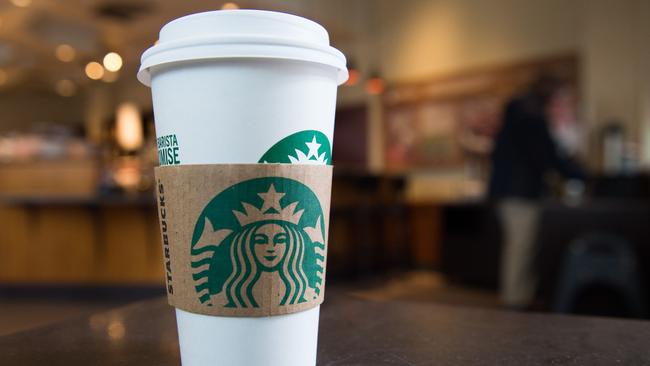
Dow Jones
8.04am: Australian banks rated ‘average’
Australian banks are rated as average in a new world ranking of listed banks, but our top-rated institutions lag a long way behind the global leaders.
That’s the finding of the ranking published by The Statement, a new banking magazine published by the London-based Lafferty Group.
The research is generated from the Lafferty 1000 global banking database, which scores the one thousand banks for quality across 21 metrics.
Other findings include that only five of the 1000 banks receive 5-star ratings and all are based in emerging markets.
7.05am: Oil prices retreat
Oil futures retreated after settling a day earlier at their highest in four months, pulling US prices back below $US40 a barrel.
The US set another single-day record number of confirmed COVID-19 cases on Wednesday. Traders continued to watch the pace of the economic recovery against that backdrop, and for signs of an improvement or setback in energy demand.
August West Texas Intermediate oil fell $US1.28, or 3.1 per cent, to settle at $US39.62 a barrel on the New York Mercantile Exchange.
The Brent crude price fell by $US94 cents or 2.2 per cent to $US42.35 a barrel.
Dow Jones
6.20am: ASX set for weak start
After gaining 0.6 per cent yesterday, Australian stocks are set for a weaker open as global investors worried about the damage new outbreaks of coronavirus might do to efforts at reviving the world economy.
At about 6am (AEST) the SPI futures index was down 28 points, or 0.5 per cent.
The ASX200 yesterday climbed as much as 1.3pc intraday but failed to hit the 6000 mark, fading at the close to finish up 35 points or 0.59 per cent to 5955.5. On the All Ords, shares added 41 points or 0.67 per cent to 6074.9.
The Australian dollar was at US69.60c, down from US69.87c at yesterday’s close.
6.10am: Wall Street closes lower
US. stocks dropped as investors continued to back away from bets on a smooth reopening from the coronavirus shutdowns.
Fresh data showed that initial unemployment claims in the US remain elevated, and the number of confirmed new COVID-19 cases in the U.S. hit a new single-day high.
The S&P 500 pulled back, dropping 0.6 per cent at the close. Only its technology and consumer discretionary sectors were in the green. The index has surged about 40 per cent from its March low.
The Dow Jones Industrial Average fell about 360 points, or 1.4 per cent, recovering after briefly being down more than 500 points.
“I think the resurgence in the COVID-19 positive cases certainly makes the markets worried,” said Feifei Li, head of equities at Research Affiliates. “They are concerned about the potential second round of lockdown.”
Investors continued to favour many of the megacap growth stocks that have outperformed throughout the market turmoil. Gains by Microsoft, Apple and Amazon helped the Nasdaq Composite rise 0.5 per cent to 10548. The tech-heavy gauge has established a wide lead over other major indexes in 2020.
Analysts have attributed the stock market’s resurgence from its lows in part to broad fiscal and monetary stimulus efforts. But they continue to parse new data that could reveal the strength of economic recovery and the progression of the coronavirus pandemic.
“It’s not surprising, depending on some of the headlines that scroll through at this time, you’re going to have what we call basically a choppy market,” said Jack Janasiewicz, portfolio manager at Natixis Investment Managers Solutions. “It’s going to be uneven. You’re going to have fits and starts. The market seems to focus on any sort of bad coronavirus news.”
Figures Thursday showed initial unemployment claims edged down last week to 1.3 million, extending a trend of gradual declines from a peak in March. Last week’s level remained well above the highest week on record before this year.
As reopenings from the coronavirus shutdowns continue, the count of confirmed new COVID-19 cases in the U.S. reached a new single-day high of 60,000 on Wednesday, according to data from Johns Hopkins University.
Shares of companies whose prospects are tied to the economic reopening came under pressure. United Airlines Holdings, American Airlines Group and Royal Caribbean Cruises each lost at least 5 per cent.
Overseas, China’s stock market zoomed higher for the eighth day in a row, leading Asian indexes higher, while stocks in the rest of the world wavered.
The Shanghai Composite rose 1.4 per cent Thursday, extending a winning streak that is now the longest since January 2018. Japan’s Nikkei 225 Index was up 0.4 per cent and Hong Kong’s Hang Seng rose 0.3 per cent.
Dow Jones Newswires
5.45am: US economy may be stalling
US economy is stumbling as the viral outbreak intensifies, threatening to slow hiring and deepening the uncertainty for employees, consumers and companies across the country.
Coronavirus case counts are rising in 38 states, and the nation as a whole has been shattering single-day records for new confirmed cases. In six states representing one-third of the economy — Arizona, California, Colorado, Florida, Michigan, and Texas — governors are reversing their reopening plans. Reopening efforts are on pause in 15 other states.
The reversals are keeping lay-offs elevated and threatening to weaken hiring. More than 1.3 million people applied for unemployment benefits last week, the Labor Department said Thursday, down from 1.4 million the previous week but still roughly double the pre-pandemic weekly record. Applications had fallen steadily in April and May but have barely declined in the past month.
Jobless claims “are stalled out at a new normal of over a million new claims every week,” said Daniel Zhao, an economist at Glassdoor. “The virus is in the driver’s seat and we’re along for the ride until the current public health crisis is resolved.”
Some economists have even warned that a so-called “double-dip” recession, in which the economy shrinks again after rebounding, could develop. Consumers, the primary driver of U.S. economic growth, are pulling back on spending in restaurants and bars, especially in the hardest-hit states. Some small businesses are closing, either under government orders or because of a lack of customers, according to private data.
AP
5.40am: Virus spikes crush US travel demand
After a brief uptick in flying interest this spring, the jump in US coronavirus cases has crushed travel demand during the normally busy summer season, the head of Delta Air Lines said, warning of job cuts ahead.
Delta Chief Executive Ed Bastian said surging coronavirus cases in the US Sun Belt necessitates “renewed caution” about returning planes to service that were grounded to save money and he urged workers to consider the airline’s voluntary exit program to “minimise involuntary furloughs.”
The carrier is operating at only about 30 per cent of its normal July schedule, Bastian said in a memo to employees, and the situation is “clearly not sustainable over the long-term.”
The memo comes a day after United Airlines warned it could lay off as many as 36,000 workers on October 1, depending on how many workers accept voluntary exit packages.
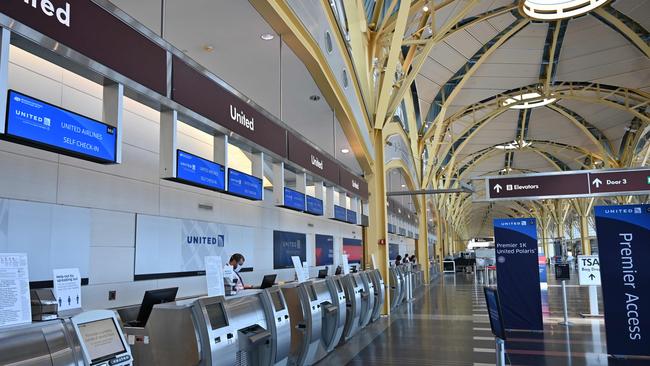
AFP
5.35am: Infections rattle markets
Stock markets broke out of their earlier lethargy to take a dive as investors worried about the damage new outbreaks of coronavirus might do to efforts at reviving the world economy.
A lower-than-expected number of US jobless claims last week helped sentiment, but the employment situation is still too dire for comfort, analysts said, and could easily deteriorate again.
“The markets appear cautious as new COVID-19 cases continue to rise in the world’s largest economy,” said analysts at the Charles Schwab brokerage.
Fawad Razaqzada at ThinkMarkets noted that there was “no obvious trigger” behind the abrupt downturn, and some suspected that seasonally reduced trading volumes may have been accentuating the downward trend.
“Markets are dealing with the summer lull,” Scope Markets analyst James Hughes told AFP, and lower volumes had caused “some errative moves”.
After a steady start, the Dow Jones index on Wall Street was nearly 500 points in the red by the late New York morning.
US stock weakness also pulled the rug from under key European markets, helping to push them into negative territory by the close. London lost 1.7 per cent, Frankfurt edged down less than 0.1 per cent and Paris fell 1.2 per cent.
Global politics remained a simmering worry for markets, as tensions between the US and its allies and China worsened over Hong Kong, trade and other issues.
Gold, by contrast, held above the $US1800 level it had breached for the first time in more than eight years on Wednesday on safe-haven buying.
There was better news in Asia earlier, where Shanghai rallied more than one per cent as data showed a pick-up in inflation that indicates the world’s number-two economy continues to improve.
AFP
5.30am: Siemens shifts away from coal
German industrial giant Siemens has unveiled plans to set its energy subsidiary on the road towards a coal-power-free future, as it won backing from shareholders to spin off the unit.
Days after Germany agreed to end use of coal-fired power generation by 2038, the conglomerate’s chief executive Joe Kaeser underlined plans to shift its division Siemens Energy towards a greener model.
“I’ve requested that the Executive Board of Siemens Energy AG rapidly submit a plan for exiting coal-fired power generation in a way that meets the needs of our stakeholders,” Kaeser told shareholders gathering to vote on plans to float the unit on the stock market.
“This plan will be more responsible than the demands being raised unilaterally by some activists, but it will certainly be more rigorous than laggards consider necessary,” he added, without giving a timeline for the exit.
Meanwhile the plan to float Siemens Energy won overwhelming approval, with 99.36 per cent votes in favour of spinning off the unit with a net book value of around 17 billion euros ($US19.2 billion) as of March 31, 2020.
Siemens Energy will also own two thirds of wind turbine maker Gamesa. The industrial giant had been under fire from climate protesters for providing rail signalling equipment to Adani’s the planned Carmichael mine in Australia.
With protesters chanting outside a general assembly meeting in February, Kaeser had said then that his company would make one billion euros ($US1.1 billion) available between now and 2025 to identify and reduce greenhouse emissions in its supply chains.
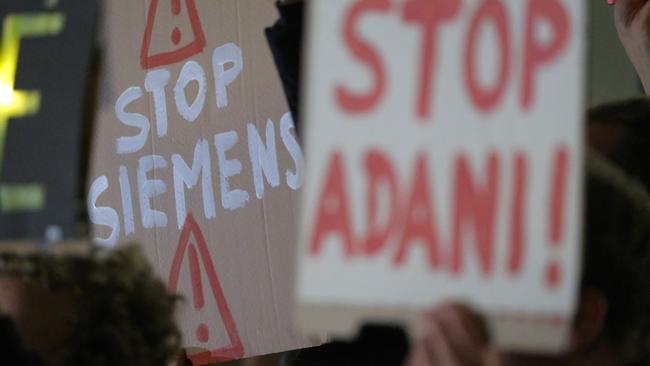
AFP
5.25am: Japan to limit coal plant financing
Japan said it would tighten rules for investment in foreign coal-fired power stations on environmental grounds, but stopped short of ending government funding for projects.
The move comes with the world’s third-largest economy under fire for financing projects to build coal plants at home and abroad – notably in Southeast Asia.
Economy, Trade and Industry Minister Hiroshi Kajiyama told reporters the government “has decided to tighten” the rules for supporting investment.
Countries seeking investment would be required to change their “behaviour” towards decarbonisation, Kajiyama said, but added that the new policy was not about cutting back funding.
“There are developing nations in the world that can only choose coal as an energy source,” he said.
AFP
5.22am: US lay-offs slow
Another 1.3 million US workers filed for unemployment benefits last week, continuing the slowdown in the pace of lay-offs, the government reported.
The four-week moving average slowed to 1.44 million in the week ended July 4, the Labor Department reported, showing a steady decline as the economy reopens from the coronavirus-imposed shutdowns, but still far higher than any pre-pandemic week.
However, nearly 19 million remain on the jobless rolls, according to the data through June 27.
AFP
5.20am: UK pharmacy Boots to cut 4000
UK pharmacy giant Boots said it will cut more than 4000 jobs after the country’s coronavirus lockdown slashed sales, especially affecting its opticians.
US-owned Boots said it planned “significant restructuring across its head office, store teams and opticians … resulting in a reduction of its headcount of more than 4,000 and the closure of 48 Boots Opticians stores”.
Boots UK managing director Sebastian James said cutting the workforce by seven per cent would allow the pharmacy “to continue its vital role as part of the UK health system, and ensure profitable long-term growth.
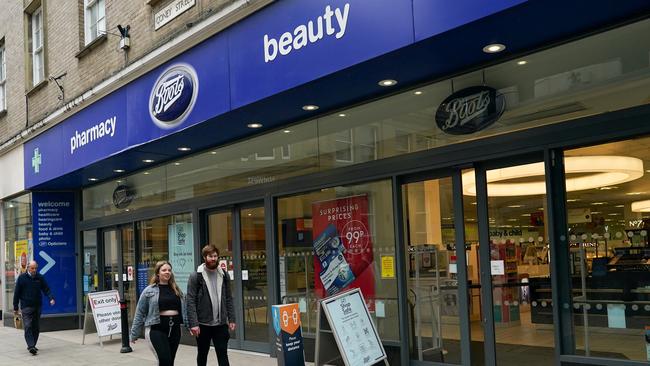
AFP


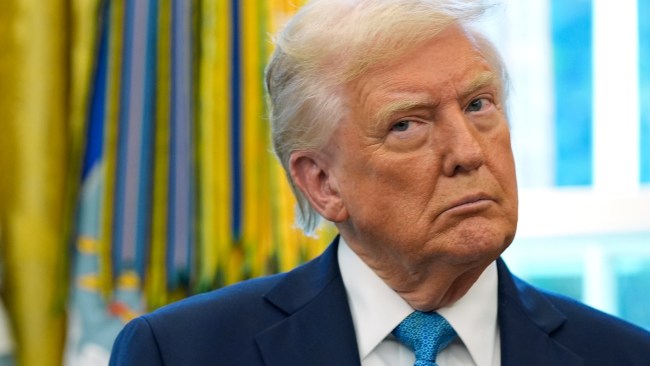
To join the conversation, please log in. Don't have an account? Register
Join the conversation, you are commenting as Logout